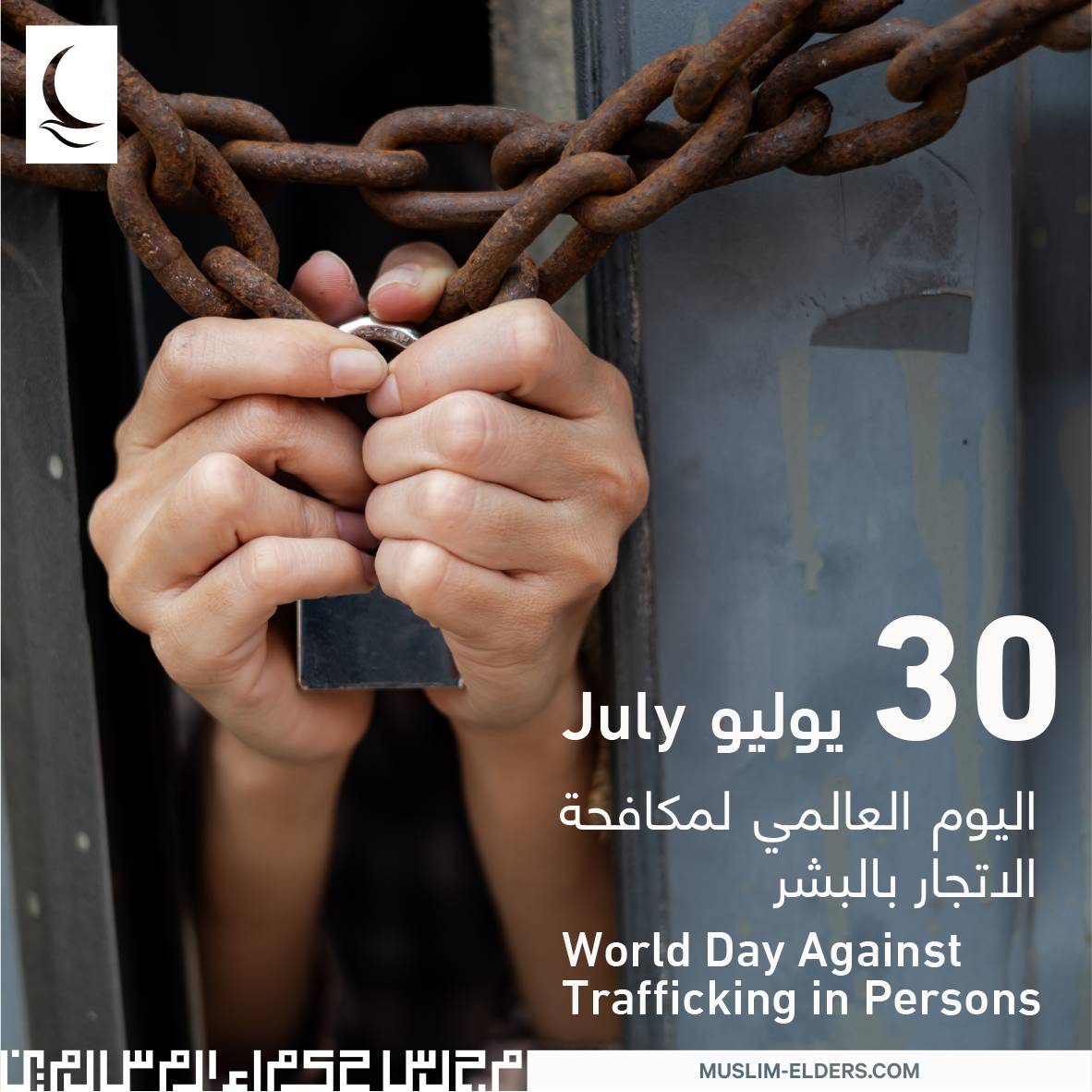On the World Day Against Trafficking in Persons, the Muslim Council of Elders calls for unifying international efforts to combat this serious phenomenon that violates human dignity and subjects millions of people to suffering and exploitation
The Muslim Council of Elders, chaired by His Eminence Prof. Dr. Ahmed Al-Tayeb, the Grand Imam of Al-Azhar, affirmed that human trafficking is one of the most challenging issues facing the international community in the modern era. Individuals are exploited for various purposes, including forced labor, crime, begging, and more. This necessitates unifying international efforts to combat this dangerous phenomenon that violates human dignity and subjects millions of people to suffering and exploitation.
In a statement on the occasion of the World Day Against Trafficking in Persons, which falls on July 30th each year, the Muslim Council of Elders stated that all divine religions urge us to respect human rights and preserve human dignity, regardless of gender, religion, or race. Allah says in the Noble Qur’an: "Indeed, We have dignified the children of Adam, carried them on land and sea, granted them good and lawful provisions, and privileged them far above many of Our creatures" (Al-Isra: 70). The Council called for increasing awareness of the dangers of human trafficking and the necessity of protecting the most vulnerable groups, especially women, children, refugees, the displaced, and those who have lost their homes and shelters. It also emphasized the necessity of providing victims with psychological, social, and legal support to ensure their reintegration into society in a manner befitting their human dignity.
The statement pointed out that the Document on Human Fraternity, signed by His Eminence Prof. Dr. Ahmed Al-Tayeb, Grand Imam of Al-Azhar, Chairman of the Muslim Council of Elders, and His Holiness Pope Francis, Pontiff of the Catholic Church, in Abu Dhabi in 2019, confirmed that Allah created all humans equal in rights, duties, and dignity. The Document called for living as brothers to build the earth and spread the values of goodness, amity, and peace. It also called for the protection of the rights of migrants, displaced persons, and all victims of wars, persecution, and injustice, as well as the weak, the frightened, the prisoners, and the tortured without exclusion or discrimination.

